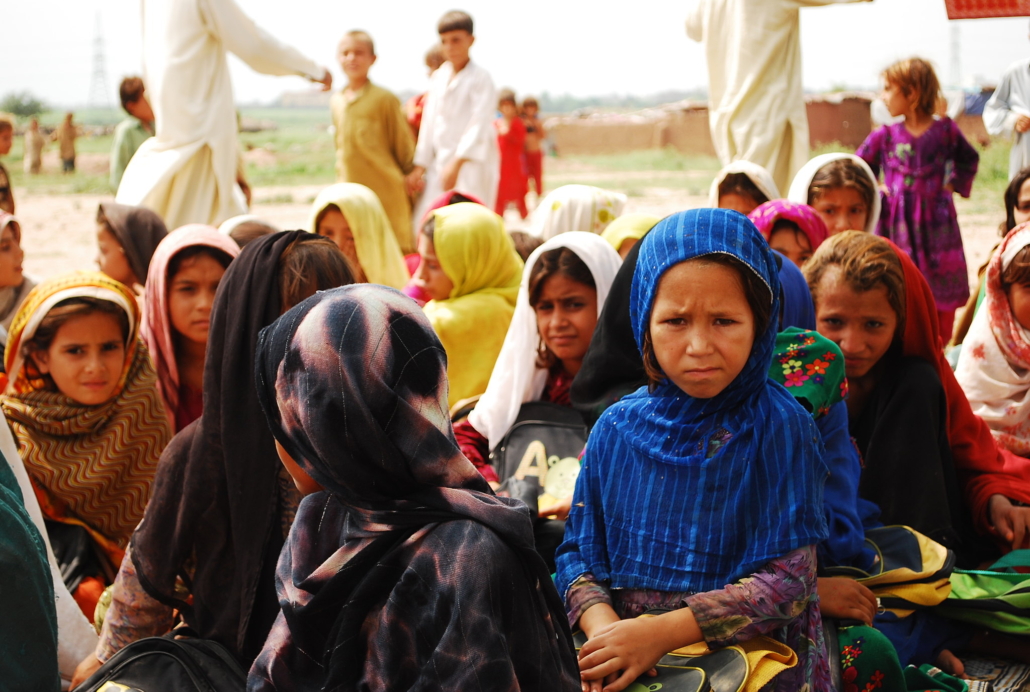NGOs Resume Programs in Afghanistan

Three NGOs resumed programs in Afghanistan after an order from Taliban authorities on December 24, 2022, prevented women from working in non-governmental organizations (NGOs). Organizations like Save the Children, the International Rescue Committee (IRC) and CARE have now restarted work across the country.
The order for both foreign and local NGOs to suspend female staff came after the Taliban claimed that female aid workers were not adhering to the strict dress code currently enforced in Afghanistan. As Taliban rules dictate that men must not deliver assistance to women, the ban has made it extremely difficult for NGOs to work, as they can only effectively support half the population. As a result, most NGOs have now suspended operations in Afghanistan.
Humanitarian Programs Resume
However, three weeks after the Taliban announced the orders, Save the Children, the IRC and CARE resumed their health and nutrition services after receiving assurances from the Ministry of Public Health that it would be safe for their female staff to return to work. Save the Children has also confirmed that it is restarting some education programs, while the IRC is working with provincial authorities to discuss the possibility of female staff returning to work in other sectors.
This week, the U.N.’s Under-Secretary-General for Humanitarian Affairs, Martin Griffiths, also confirmed that Taliban ministers were in the process of drawing up new guidelines to allow some humanitarian organizations to employ Afghani women. Mr. Griffiths told the BBC that he thought the Taliban were “listening” and had received “encouraging responses” after numerous meetings with Taliban leaders to discuss the ban on female NGO workers.
Restrictions on Women’s Rights and the Humanitarian Crisis
The Taliban’s ban on female NGO workers is just one of the numerous restrictions placed on women in the country since they came into power in 2021. Driven by an oppressive and patriarchal interpretation of Islam, the Jihadist group has undone much of the previous efforts to liberalize the country in years before their takeover. Women in Afghanistan are currently subject to strict dress codes, unable to attend schools or universities and cannot enter certain public spaces such as gyms or parks.
Women are witnessing the loss of their liberties and autonomy amid an unprecedented humanitarian emergency. With 18.9 million people experiencing food insecurity, an extraordinary amount of people are set to suffer from malnutrition, starvation and preventable diseases this year. In light of this, the need for NGOs to provide aid and address inequalities is more prevalent than ever.
NGOs Helping
As NGOs resume programs in Afghanistan, services from Save the Children, the IRC and CARE in Afghanistan will hopefully provide some relief during this humanitarian crisis. Since the Taliban’s takeover of Afghanistan, Save the Children has provided more than 3.3 million people (1.8 million of those being children) with nutritional, educational and mental health services, as well as essential aid such as blankets, materials to build shelters and hygiene products.
The IRC has also provided aid to thousands of villages across nine provinces in Afghanistan. It is currently supporting more than 100 health centers, helping locals with community development projects and improving access to education, particularly in rural areas. The organization is also leading the fight to protect and empower women and girls in the country by providing them with education opportunities, giving advice on women’s health and teaching them advocacy skills in its Afghan Women and Girls Program.
CARE runs three programs in Afghanistan. Its Resilience Program works to protect women’s social and political rights and seeks to promote female engagement in business, for instance through agricultural production. Its Education Program also provides children with access to education through a community-based approach, whilst its Health Equity and Rights Program provides health care to vulnerable adults and children.
While some of these services are still under suspension due to the ban, the resumption of programs in Afghanistan in the health and nutrition sector is bringing some hope and optimism to a struggling country. With continuing negotiations between the U.N. and the Taliban to try and reverse the decrees restricting women’s rights, it is vital that people continue to support NGOs in the hope that more humanitarian sectors will start to open up for women to work in.
– Priya Thakkar
Photo: Flickr
